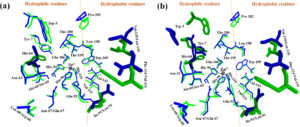INSPIRATION
Blockchain secures its position as a top emerging trend by enabling two important functions in the circular economy — providing transparency and traceability, and incentivizing circular behavior. Startups use blockchain’s immutability to verify the origin of products, assuring that they meet their sustainability claims. For example, The World Economic Forum’s Mining and Metals Blockchain Initiative’s (MMBI)
Carbon Tracing Platform (COT) — a unique proof of concept,traces carbon emissions across the supply chain. This helps mining companies to meet Environmental, Social, and Corporate Governance (ESG) demands. Additionally, rewarding circular consumption and disposal motivate people beyond
the obvious but abstract necessity to protect the planet. For instance, startups are compensating people with a sum or reward points for further purchases on returning packages like empty bottles.
Dutch startup Circularise develops blockchain-based solutions for tracing materials across supply chains. The platform helps suppliers, manufacturers, OEMs, and brand owners create, maintain, and transact digital assets. It allows suppliers and manufacturers to increase material value by digitizing
their materials and making them traceable. Further, it enables OEMs and brand owners to verify sustainability certifications as well as track carbon footprints and other sustainability metrics of their products. Similarly, it enables the consumers to access information underlying a company’s sustainability
claims, thus, establishing trust and reliability.
NatureCoin is a Canadian startup that offers an Ethereum blockchain platform with a proof-of-stake (POS) consensus algorithm. The decentralized reward system finds smart bins and users worldwide. NatureCoin provides an e-wallet through which users accumulate points every time they deposit recyclable products in the smart bins. These points are redeemable to purchase goods or services. The startup stores all the transactions and recycling data on a public ledger that tracks environmental impact and provides insights
on the amount of carbon footprint reduced. This data has the potential to help governments make more evidence-based environmental policies.




